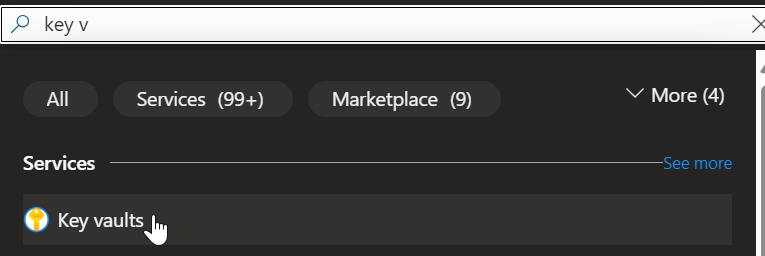Introduction
If you are using Azure Key Vault to store your secrets, you probably know it's a tedious task to search manually for a specific secret when you have a lot of secrets stored in the same Key Vault - for example, if you store your BitLocker keys for your entire organization.
This guide will show you how to efficiently search and retrieve secrets using PowerShell commands with wildcard support, making your secret management workflow much more efficient.
Important Update
Please notice that the old connection to Azure Key Vault has been changed if you are trying to connect from a command line outside of Azure Cloud Shell.
From now you need to use the new authentication method shown below.
Authentication Setup
New Authentication Method
Use this command to authenticate with Azure Key Vault from outside Azure Cloud Shell:
Connect-AzAccount -AuthScope AzureKeyVaultServiceEndpointResourceIdBasic Secret Retrieval
Single Secret Retrieval
For retrieving a specific secret, use this PowerShell command (works in PowerShell ISE or Azure Cloud Shell):
Get-AzKeyVaultSecret -VaultName "<your-unique-keyvault-name>" -Name "SecretName" -AsPlainTextAdvanced Wildcard Search
Pattern Matching with Wildcards
You can use wildcards to search for secrets with specific patterns, which is particularly useful when dealing with large numbers of secrets:
Get-AzKeyVaultSecret -VaultName "<your-unique-keyvault-name>" -Name "Secret*" -AsPlainTextPro Tip: Pattern Matching Examples
Adding an asterisk in any part of the secret name will make the search work as a wildcard. For example, if you have multiple name patterns like:
Test-ing-username
You can search for all secrets starting with "test-ing" using the pattern shown below.
Pattern-Based Search Example
Use this command to search for all secrets under a specific pattern (e.g., "test-ing"):
Get-AzKeyVaultSecret -VaultName "<your-unique-keyvault-name>" -Name "test-ing*" -AsPlainText
Azure Key Vault Portal Interface
Retrieving Secret Values
Getting the Actual Secret Value
The wildcard search retrieves all secrets matching the pattern with metadata, but without the actual secret values. To get the secret value itself, use the full name of the secret:
Get-AzKeyVaultSecret -VaultName "<your-unique-keyvault-name>" -Name "SecretName" -AsPlainTextImportant Note
The -AsPlainText parameter is crucial for retrieving the actual secret value. Without it, you'll only get metadata about the secret.
Summary
Using PowerShell with Azure Key Vault makes it easy to search and retrieve secrets efficiently, especially when dealing with large numbers of secrets. The wildcard functionality is particularly useful for pattern-based secret naming conventions.
Key Benefits
- Efficient wildcard searching
- Pattern-based secret retrieval
- Secure secret management
Best Practices
- Use proper authentication
- Implement naming conventions
- Leverage wildcard patterns
